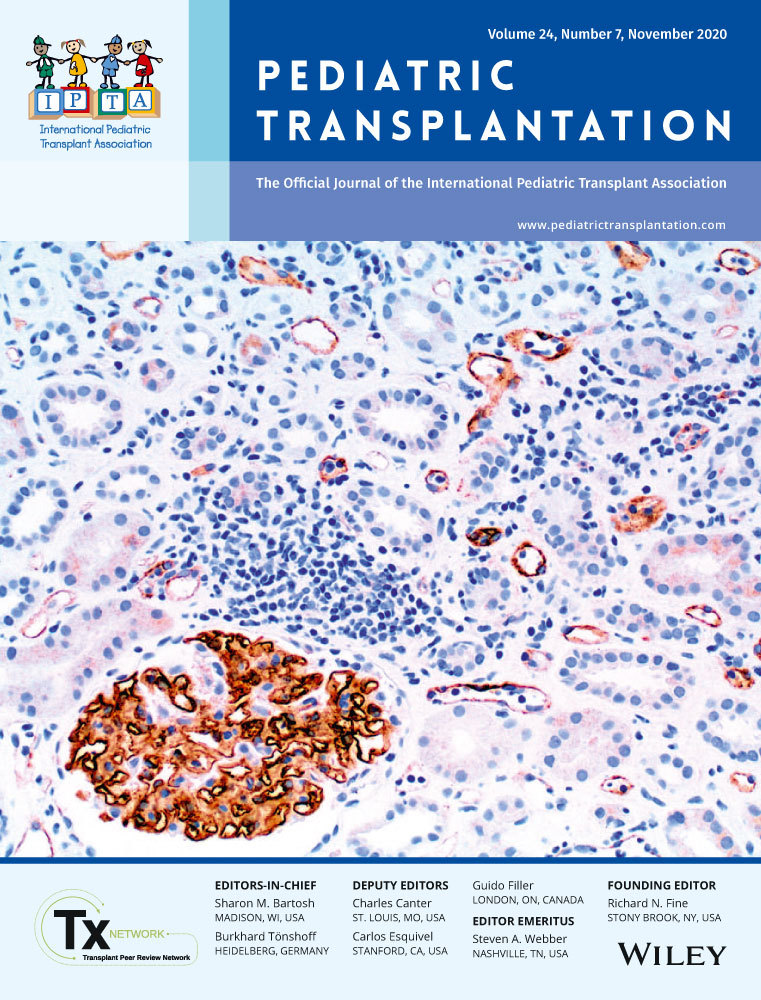Anti-hypertensive treatment in the immediate post-operative period and 1 year after pediatric heart transplantation
Abstract
Hypertension is a known complication of pediatric heart transplantation. We sought to identify factors associated with anti-hypertensive use in pediatric heart transplant recipients immediately post-transplant and oral anti-hypertensive use at discharge and 1-year post-transplant. Retrospective chart review was conducted of patients ≤18 years who underwent heart transplantation at two major heart transplant centers between August 1, 2009 and December 31, 2017 with ≥1-year follow-up. Exclusion criteria included re-transplant, multi-organ recipients, survival <1 year, and comorbidities associated with hypertension. Anti-hypertensive use was recorded during initial ICU stay, at discharge, and 1-year post-transplant. Univariate and multivariate analyses determined associations of demographic and diagnostic factors and need for anti-hypertensives. There were 188 patients that met inclusion criteria. Anti-hypertensive infusions were required in the ICU post-transplant in 46 patients (24.5%) for a median of 3 days (1-21 days). Oral anti-hypertensives were required in 58 patients (30.9%) at discharge and 1-year post-transplant. Anti-hypertensive infusion in the ICU post-transplant was associated with donor-to-recipient weight ratio. Oral anti-hypertensive use at discharge was associated with weight ratio and pretransplant VAD use, and at 1-year, post-transplant was associated with age at transplant, steroid use at discharge, and oral anti-hypertensive use at discharge. Hypertension is common immediately following and 1-year post-transplant. Weight ratio was the only independent predictor of anti-hypertensive use in the early post-transplant period, whereas VAD use was also associated with anti-hypertensive use at discharge. Anti-hypertensive use 1-year post-transplant was not associated with those factors, but rather with age at transplant and steroid use.
CONFLICT OF INTEREST
The authors have no financial conflict of interest to disclose that are pertinent to the content of this paper.




